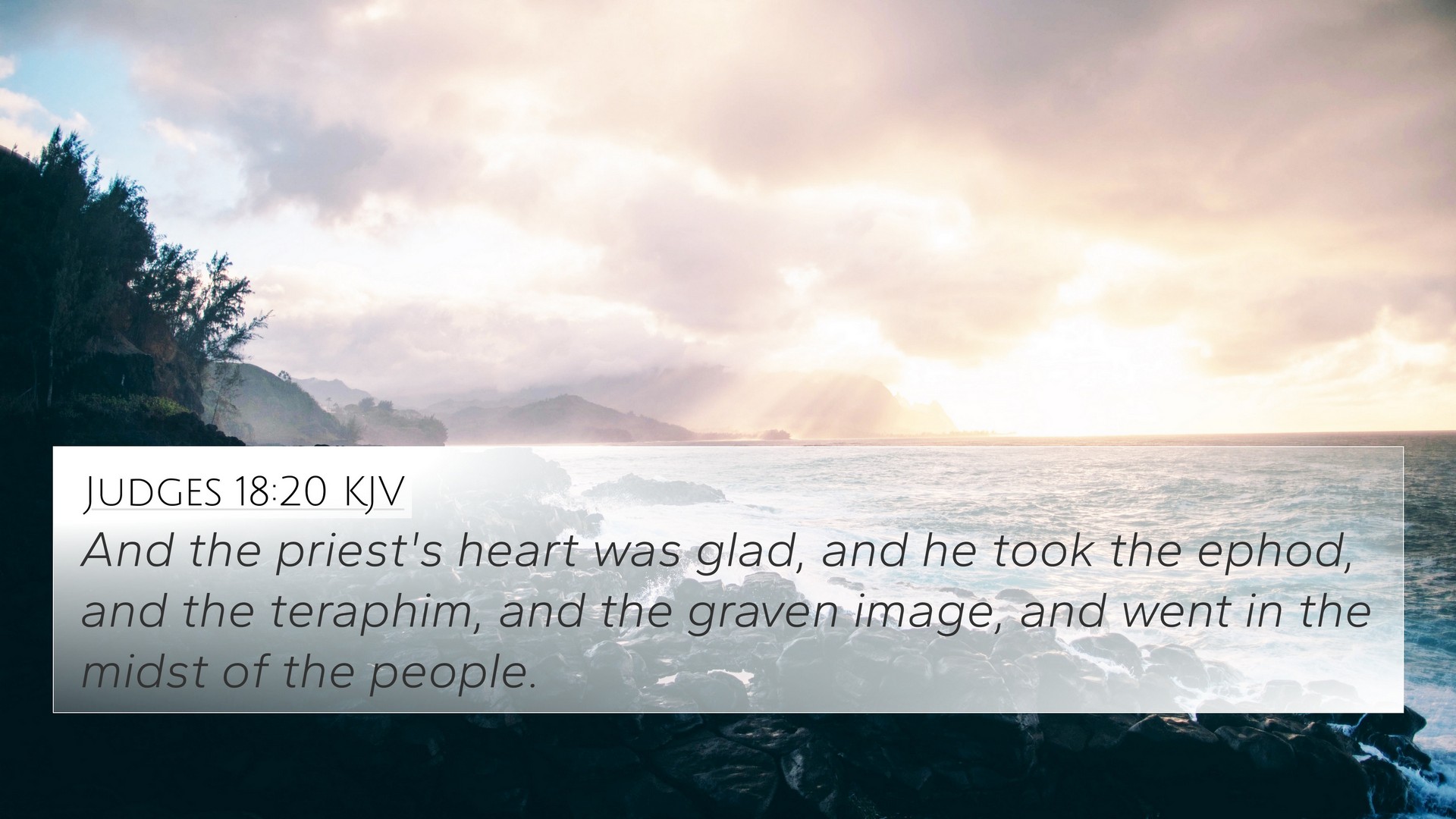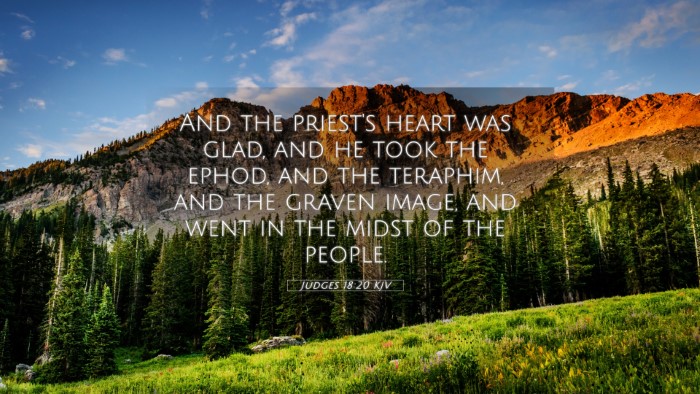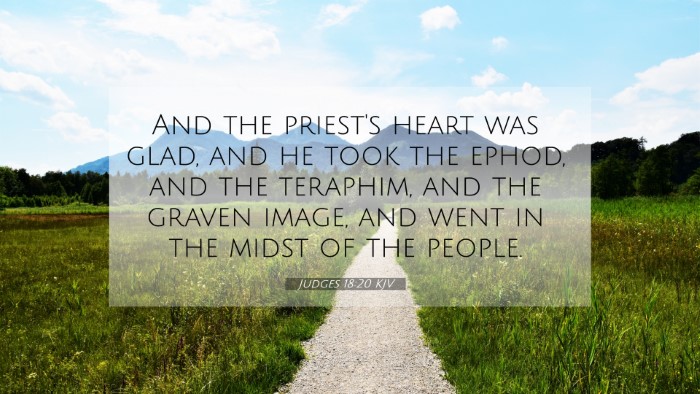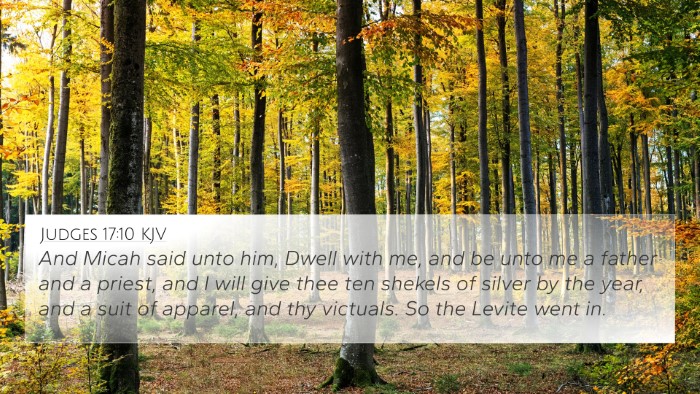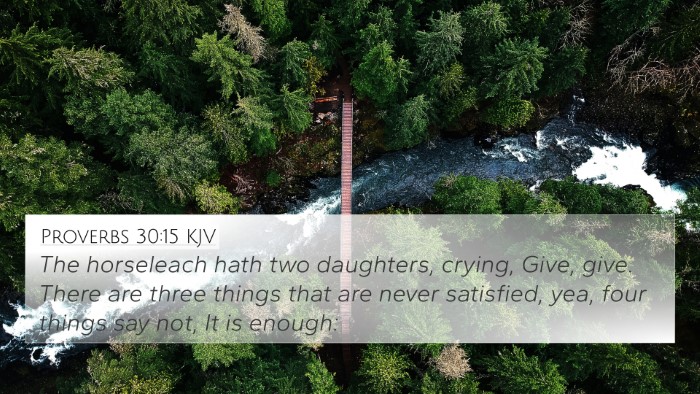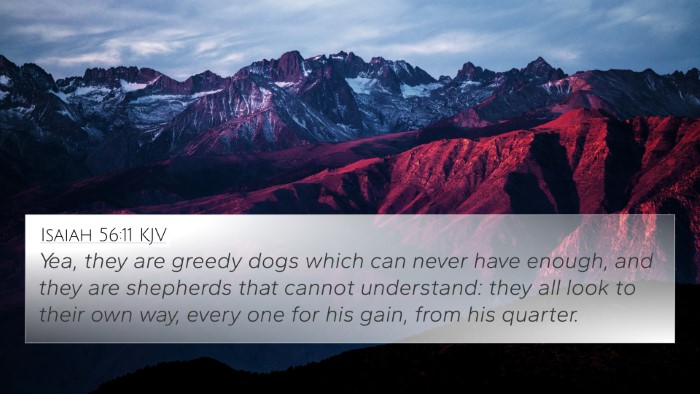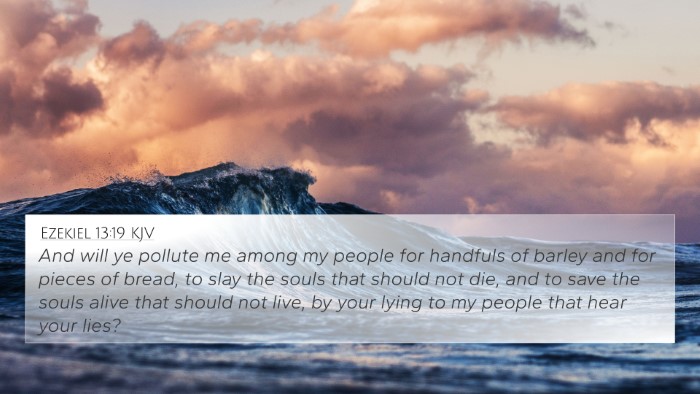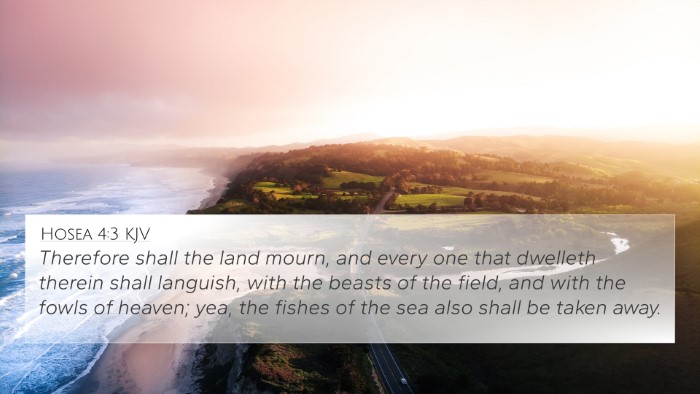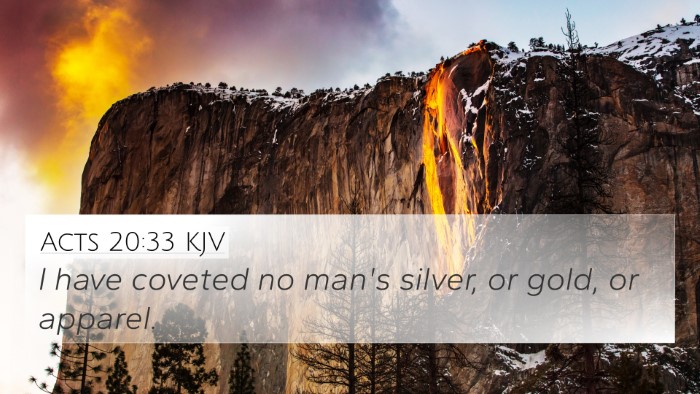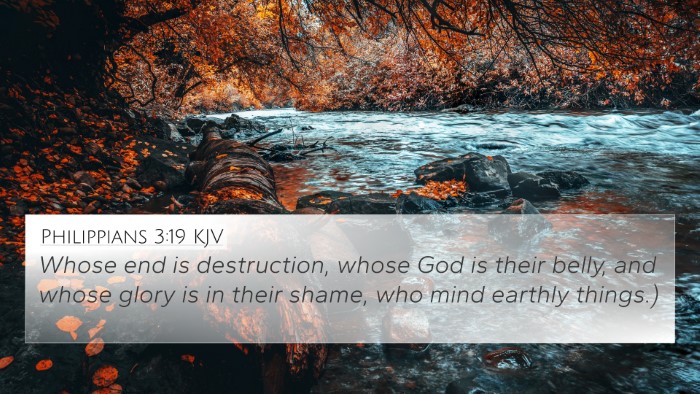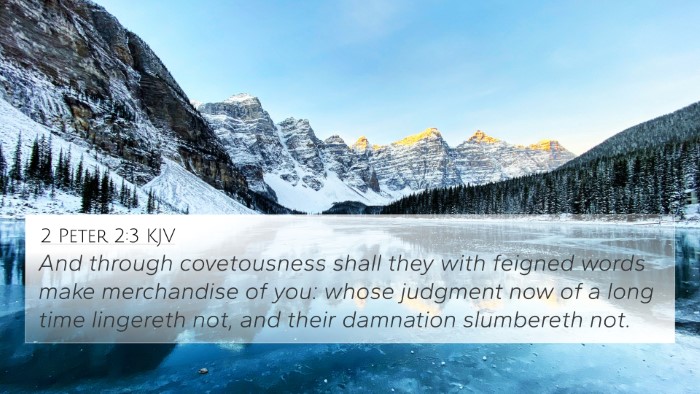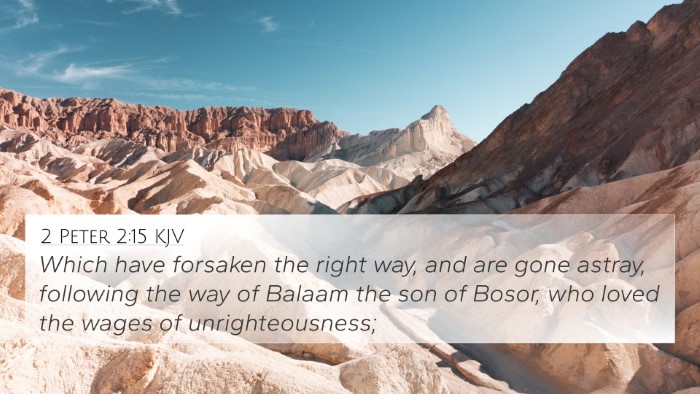Understanding Judges 18:20
Verse Reference: Judges 18:20 - "And the priest's heart was glad, and he took the ephod, and the teraphim, and the graven image, and went in the midst of the people."
Overview and Context
The Book of Judges narrates a cycle of Israel’s disobedience, oppression, and deliverance. Judges 18 describes the tribe of Dan seeking territory and discovering the peaceful and unsuspecting city of Laish, which they planned to conquer. In this particular verse, we see the active involvement of a priest who plays a crucial role in the proceedings.
Interpretation and Meaning
This verse signifies several key themes as described by various public domain commentaries:
- Matthew Henry: Henry focuses on the priest's gladness over being sought after by the Danites, highlighting the allure of personal ambition and the seduction of priestly roles that lead to questionable choices. Here, the priest shows a willingness to abandon his previous association with the house of Micah, illustrating a theme of instability in faith and loyalty.
- Albert Barnes: Barnes emphasizes the contrast between true worship and the idolatrous practices that were common in Israel during this time. He notes that the priest, in taking the symbols of worship with him, reflects the syncretism of the era where true and false worship were blended.
- Adam Clarke: Clarke observes that the priest's actions demonstrate a profound desire for material gain and personal security, a critical reflection on the spiritual climate of the nation. The taking of the ephod and teraphim symbolizes the distortion of true worship.
Bible Verse Cross-References
To understand the connections between Bible verses regarding Judges 18:20, consider the following cross-references:
- Exodus 28:6-30: Discusses the high priest's garments, including the ephod, essential for understanding the sacrificial role.
- 1 Samuel 14:18: Reflects on the use of the ephod seeking divine guidance, contrasting the priest's current actions.
- Deuteronomy 12:29-31: Warns against adopting practices from other nations, echoing the conflict in Dan's worship practices.
- Judges 17:5: Describes Micah’s priestly practices, framing the narrative of Judges 18 around idolatry and personal ambition.
- Jeremiah 10:14: Addresses foolishness in idol worship, paralleling the actions taken by the priest in Judges 18:20.
- 1 Chronicles 10:14: Discusses the relationship between leadership and idolatry, reinforcing the theme of instability and conflict in worship.
- Hosea 3:4-5: Points towards a future restoration that emerges from idolatry's consequences, juxtaposing the current actions of the priest.
Connections Between Bible Verses
Judges 18:20 not only presents a unique scenario of tribal politics but also a deeper theological discourse on idolatry and worship:
- Thematic Bible Verse Connections: The actions of the priest in Judges 18:20 can be thematically linked to later discussions of authentic worship found in the New Testament, such as Matthew 15:8-9, where Jesus condemns lip service and pretense in worship.
- Comparative Bible Verse Analysis: Comparing this narrative with 1 Kings 12:28-30, which recounts the establishment of alternate worship sites, provides context for the recurring motifs of idolatry across Israel's history.
Conclusion
Judges 18:20 serves as a vital example of the intertwining of leadership, worship, and personal ambition in Israel's history. It prompts a reflective analysis on the authenticity of faith practices and the dangers posed by adhering to syncretic forms of worship.
By examining biblical cross-references, connecting themes, and understanding the implications of this verse, believers gain insights into their spiritual lives and the historical context of their faith.
